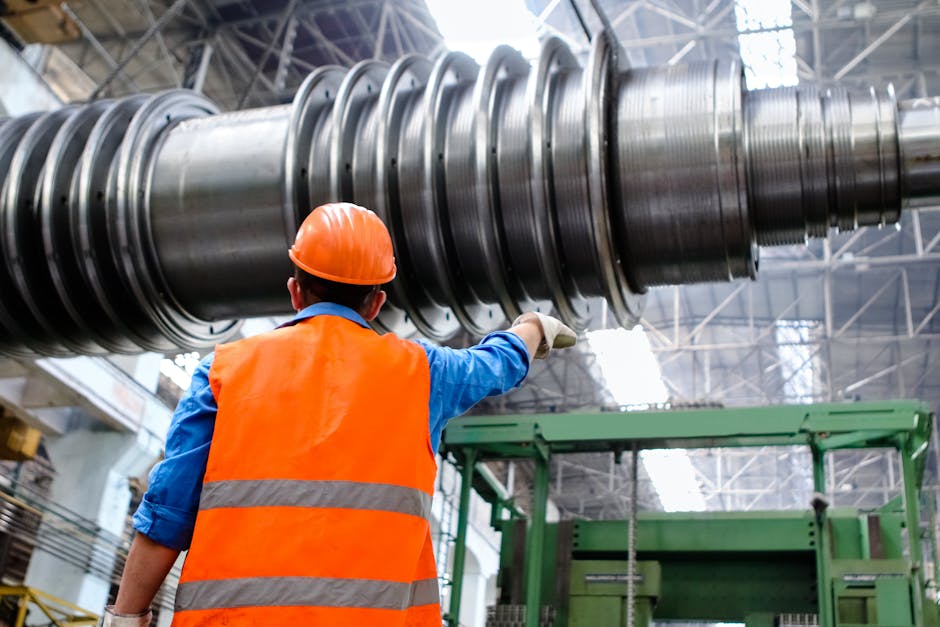The Advancement of Precision Sheet Metal Work in UK Engineering
The advancement of precision sheet metal work in UK engineering has been a pivotal aspect of the industry’s progress. Over the years, the evolution of manufacturing technologies has significantly enhanced the precision and quality of sheet metal work, leading to a notable impact on product quality.
Advanced techniques have also enabled greater design flexibility and customisation, providing engineers with the ability to create highly intricate and sophisticated metal components.
As the industry continues to evolve, future trends and innovations in UK engineering are poised to further revolutionise sheet metal work, driving the sector towards even greater precision and efficiency.
This article aims to explore the historical development, current state, and future prospects of precision sheet metal work in UK engineering.
Key Takeaways
- The Industrial Revolution spurred the development of advanced manufacturing techniques in the UK, leading to a shift from traditional handcrafted metalwork to more efficient methods.
- The implementation of water and steam power in the industry transformed the manufacturing process, while the invention of innovative metalworking machinery increased efficiency.
- Advanced CNC machining and laser cutting technology have enhanced the precision and speed of cutting, enabling the production of intricate components and complex geometries.
- The integration of advanced automation systems, real-time monitoring, and inspection systems has improved product quality, reduced lead times, and enhanced overall productivity without compromising quality.
History of Sheet Metal Work in UK Engineering

The history of sheet metal work in UK engineering dates back to the Industrial Revolution, when the demand for precision metal components spurred the development of advanced manufacturing techniques. This period marked a significant shift from traditional handcrafted metalwork to more efficient and precise methods of production.
The Industrial Revolution brought about technological advancements that revolutionised metalworking techniques, leading to the emergence of new tools and machinery that enabled the mass production of sheet metal components. During this time, the implementation of water and steam power, as well as the invention of innovative metalworking machinery, transformed the industry and increased the efficiency of production processes.
These developments paved the way for the widespread adoption of sheet metal in various engineering applications, ranging from the manufacturing of machinery and equipment to the construction of infrastructure.
The Industrial Revolution not only catalysed the evolution of metalworking techniques but also laid the foundation for the modern sheet metal industry in the UK. This historical context is crucial for understanding the progression of precision sheet metal work in UK engineering and its impact on contemporary manufacturing practises.
Evolution of Precision Manufacturing Technologies

With the advent of advanced CNC machining, precision manufacturing technologies have undergone a significant transformation in the UK engineering industry. This evolution has been marked by the incorporation of cutting-edge techniques and technologies, such as precision machining and laser cutting technology, which have revolutionised the way components are produced and assembled.
Precision Machining: The utilisation of computer-controlled machines has enabled the production of highly intricate and complex components with unprecedented accuracy and efficiency.
Laser Cutting Technology: The introduction of laser cutting technology has significantly enhanced the precision and speed of cutting sheet metal, leading to improved productivity and cost-effectiveness.
Advanced Automation Systems: The integration of advanced automation systems has streamlined manufacturing processes, reducing human error and increasing overall production output.
These advancements have not only elevated the precision and quality of manufactured components but have also expedited the overall manufacturing process, empowering UK engineering firms to compete on a global scale.
The impact of these advanced techniques on product quality will now be explored in detail.
Impact of Advanced Techniques on Product Quality

How do advanced precision manufacturing technologies impact the overall product quality in the UK engineering industry?
The implementation of advanced automation in precision sheet metal work has significantly improved product quality. Automated systems ensure consistent precision and accuracy, reducing the margin of error in manufacturing processes. This results in products that meet stringent quality standards, leading to enhanced customer satisfaction.
Additionally, the integration of advanced quality control techniques, such as real-time monitoring and inspection systems, allows for immediate identification and rectification of any deviations from quality parameters. This proactive approach ensures that only products meeting the highest quality standards are released into the market.
Advanced techniques also contribute to greater efficiency in production, reducing lead times and enhancing overall productivity without compromising on quality. The use of cutting-edge technologies, including robotic welding and laser cutting, enables intricate designs and complex geometries to be manufactured with unparallelled precision, further elevating the quality of the end products.
Design Flexibility and Customisation in Sheet Metal Work

The demand for design flexibility and customisation in precision sheet metal work has seen a noticeable upsurge in response to evolving market requirements within the UK engineering industry. This shift is driven by the need for customised solutions that aline with specific project demands and industry standards. Companies are increasingly seeking sheet metal work that not only meets their technical specifications but also offers design flexibility and sustainability.
To address these evolving needs, the industry is focussing on:
- Customisation: Tailoring sheet metal products to meet specific client requirements, ranging from intricate designs to specialised finishes.
- Efficiency: Implementing advanced production techniques and technologies to streamline manufacturing processes and reduce lead times.
- Sustainability: Embracing environmentally friendly practises and materials to ensure that sheet metal work alines with sustainable and green initiatives.
This emphasis on design flexibility, customisation, efficiency, and sustainability reflects the industry’s commitment to delivering high-quality, tailored solutions that meet the diverse and evolving needs of UK engineering projects.
As the industry continues to adapt to these changing demands, it is important to explore future trends and innovations in UK engineering.
Future Trends and Innovations in UK Engineering

Embracing the latest technological advancements, UK engineering is poised to revolutionise traditional manufacturing processes through the integration of cutting-edge automation and digitalisation. Industry 4.0, the fourth industrial revolution, is a significant driving force behind these innovations. It involves the convergence of digital technologies, such as IoT, AI, and data analytics, with traditional manufacturing processes to create smart factories. These smart factories are capable of autonomous production, predictive maintenance, and real-time quality control, leading to greater efficiency and productivity.
In addition to digitalisation, the engineering sector in the UK is also focussing on the use of sustainable materials. With an increasing emphasis on environmental responsibility, the demand for eco-friendly production processes and materials is growing. This has led to a shift towards the use of sustainable materials in engineering, such as recycled metals and bio-based composites. These materials not only reduce the environmental impact of manufacturing but also offer opportunities for innovative designs and enhanced product performance.
As UK engineering continues to embrace Industry 4.0 and sustainable materials, the future of manufacturing is set to be characterised by highly efficient, environmentally conscious, and innovative processes.
Frequently Asked Questions
What Are the Specific Challenges Faced by UK Engineering Companies in Adopting Precision Sheet Metal Work Techniques?
UK engineering companies face challenges in adopting precision sheet metal work techniques, including the need for automation, innovation, and quality control. The industry must address these obstacles to enhance efficiency and meet the demands of modern engineering standards.
How Have Advancements in Precision Sheet Metal Work Impacted the Skills and Training Requirements for Engineers in the Uk?
Advancements in precision sheet metal work have significantly impacted the skills and training requirements for engineers in the UK. Technological advancements have necessitated a focus on advanced manufacturing techniques and proficiency in using specialised equipment. Comprehensive skills training programmes are essential to meet these evolving demands.
What Are the Environmental Implications of Using Advanced Precision Manufacturing Technologies in Sheet Metal Work?
Embracing advanced precision manufacturing technologies in sheet metal work offers significant environmental benefits, reducing waste and energy consumption. By adopting sustainable practises, such as material optimisation and efficient production processes, the industry can minimise its environmental impact and contribute to a greener future.
How Has the Globalisation of the Manufacturing Industry Affected the Demand for Custom-Designed Precision Sheet Metal Products in the Uk?
The globalisation of the manufacturing industry has significantly impacted the demand for custom-designed precision sheet metal products in the UK. Increased global supply and market competition have driven the need for higher quality and more specialised products.
What Are the Ethical Considerations Involved in the Use of Advanced Techniques and Materials in Sheet Metal Work Within the UK Engineering Industry?
What ethical considerations arise in advanced sheet metal work in UK engineering? Material selection impacts supply chain and sustainability. How do engineers balance innovation with ethical sourcing, waste reduction, and fair labour practises? These considerations shape responsible industry advancement.
Conclusion
In conclusion, the progression of precision sheet metal work in UK engineering has significantly improved product quality and design flexibility.
Advanced manufacturing technologies have revolutionised the industry, allowing for greater customisation and innovation. According to a study by the Engineering Employers’ Federation, 85% of manufacturers in the UK have adopted advanced techniques in sheet metal work, demonstrating the widespread impact of these advancements on the industry.
Contact us to discuss our services now!
